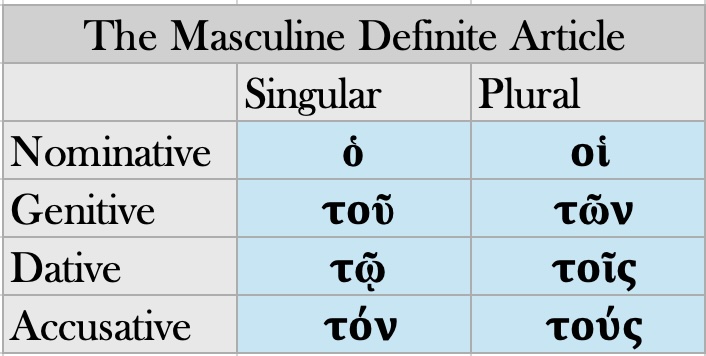7.23 The DEFINITE ARTICLE, translated as the in English, is far and away the most common word in Greek. Greek, however, uses the definite article in more varied ways than does English. For example, proper names are often accompanied by a definite article: “Socrates is good (ἀγαθός),” for example, would be rendered in Greek as ὁ Σωκράτης ἐστὶν ἀγαθός. Other uses of the Greek definite article are treated in later lessons. For now, it is good to assume that unless there is some reason to omit it, a Greek definite article often accompanies nouns.
Like nouns, the definite article in Greek has three genders. For each, there are eight forms to cover the two numbers (singular and plural) and four cases (nominative, genitive, dative, accusative). These forms remain the same regardless of a noun’s declension.
7.24 The definite article of MASCULINE NOUNS is as follows:
(S 332)
7.25 When a definite article accompanies a noun, both must parse the same. In other words, they must be the same in gender, number and case. Note the following examples:






